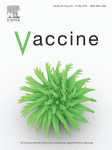Ver ítem
- xmlui.general.dspace_homeCentros e Institutos de InvestigaciónCICVyA. Centro de Investigación en Ciencias Veterinarias y AgronómicasInstituto de PatobiologíaArtículos científicosxmlui.ArtifactBrowser.ItemViewer.trail
- Inicio
- Centros e Institutos de Investigación
- CICVyA. Centro de Investigación en Ciencias Veterinarias y Agronómicas
- Instituto de Patobiología
- Artículos científicos
- Ver ítem
Physiopathological effects of Escherichia coli O157:H7 inoculation in weaned calves fed with colostrum containing antibodies to EspB and Intimin
Resumen
Escherichia coli O157:H7 is responsible for severe intestinal disease and hemolytic uremic syndrome (HUS), a serious systemic complication which particularly affects children. Cattle are the primary reservoir for E. coli O157:H7 and the main source of infection for humans. In this study, we evaluated the ability of transferred maternal colostral antibodies against γ-Intimin C280 and EspB, to protect young weaned calves from E. coli O157:H7 infection.
[ver mas...]
Escherichia coli O157:H7 is responsible for severe intestinal disease and hemolytic uremic syndrome (HUS), a serious systemic complication which particularly affects children. Cattle are the primary reservoir for E. coli O157:H7 and the main source of infection for humans. In this study, we evaluated the ability of transferred maternal colostral antibodies against γ-Intimin C280 and EspB, to protect young weaned calves from E. coli O157:H7 infection. Hyperimmune colostra were obtained by immunization of pregnant cows with a mix of the mentioned antigens. All vaccinated cows mounted a significant IgG response against γ-Intimin C280, and EspB in sera and colostra. Colostrum-fed calves also exhibited high serum IgG titers against γ-Intimin C280 and EspB along with a rise in mucosal γ-Intimin C280-specific IgG antibodies at recto-anal junction and ileum. Additionally, 70 day-old calves received a challenge with E. coli O157:H7 but no reduction in total bacterial shedding or frequency of E. coli O157:H7 excretion from these calves was observed. Most tissue samples showed granulocyte focal infiltrations of the lamina propria and enterocyte erosion. In conclusion, up to the 70th day, the passively acquired γ-Intimin-C280 and EspB-IgG antibodies present in sera and recto-anal mucosa reached a titer insufficient to reduce EHEC O157 shedding and damages of experimentally inoculated young calves.
[Cerrar]

Autor
Rabinovitz, Bettina Carol;
Vilte, Daniel Alejandro;
Larzabal, Mariano;
Abdala, Alejandro Ariel;
Galarza, Roxana Ivon;
Zotta, Elsa;
Ibarra, Cristina E.;
Mercado, Elsa Cristina;
Cataldi, Angel Adrian;
Fuente
Vaccine 32 (30) : 3823-3829 (June 2014)
Fecha
2014-06-24
Editorial
Elsevier
ISSN
0264-410X
Formato
pdf
Tipo de documento
artículo
Palabras Claves
Derechos de acceso
Restringido
 Excepto donde se diga explicitamente, este item se publica bajo la siguiente descripción: Creative Commons Attribution-NonCommercial-ShareAlike 2.5 Unported (CC BY-NC-SA 2.5)
Excepto donde se diga explicitamente, este item se publica bajo la siguiente descripción: Creative Commons Attribution-NonCommercial-ShareAlike 2.5 Unported (CC BY-NC-SA 2.5)

